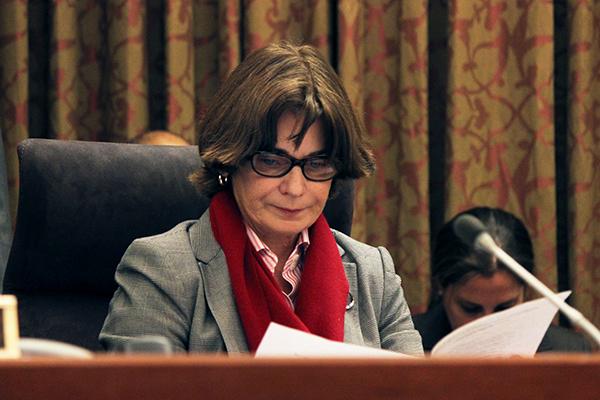Black and Latina women in D.C. could start to see an increase in their paychecks sometime next year.
On Feb. 2, the six female members of the D.C. Council co-sponsored a bill advocating for an official close in the gender-based pay gap – for women of all races. Though D.C. is considered to have the lowest wage gap in the nation, with women here now making about $0.90 for every dollar, women of color face a larger discrepancy in pay.
The American Association of University Women reports that black women and Latinas in the District only make $0.64 and $0.53, respectively, to every $1 that white men in the city do.
Equal pay for women has been one of the Democratic presidential candidates’ key campaign points so far. During his first year in office, President Barack Obama signed the Lilly Ledbetter Fair Pay Act into law, which made made wage discrimination illegal and reversed a Supreme Court decision that had originally enforced the practice.
The D.C Council bill will be the first amendment to the original Equal Pay Act since its enactment in 1963. It exchanges the phrase “substantially equal” for “substantially similar,” which broadens the kind of work for which employers have to pay equal wages. The bill will additionally require employers to report justification behind wage discrepancies besides the employee’s sex in their record books.
Ward 3 D.C. Council member Mary Cheh, who drafted the bill, said she thinks of the bill as an alert to employers and businesses in the community and a message that Council members are serious about the issue.
“I don’t want to see any kind of maneuvering or clever interpretation,” Cheh said. “If men and women are doing substantially similar work, they should get the same pay. It’s very simple.”
Cheh, who is also a GW Law professor, said there may be some resistance to the bill from business owners during the hearings and council discussions, which are part of the bill-passing process.
Business leaders in D.C. are currently in disagreement with the D.C. Council over a 16-week paid leave bill that would give employees who live and work in the city the most extensive paid leave coverage in the country. The leaders wrote a letter to D.C. Council chair Phil Mendelson, asking him to do a financial study of the bill’s effects.
“I wouldn’t expect any immediate change,” Cheh said. “I would expect a noticeable change about a year or two after it’s enacted.”
Ariane Hegewisch, a program director on employment and earnings at the Institute for Women’s Policy Research, said the bill legitimizes what she said was “common sense:” paying all kinds of women the same. She said the world is very different since the equal pay act was passed in the 1960s.
“You have to be very explicit and direct to make sure that what people think is common sense is actually in the statute,” Hegewisch said.
While the District committees will need time to sort through the details, Susan Mottet, the former president and current member of the D.C. chapter of the National Organization for Women, said the fact that similar federal bills like the Lily Ledbetter Fair Pay Act were passed is a good sign for Cheh’s bill.
“If Congress can pass something, the D.C. Council can,” Mottet said.
David Meadows, a spokesman for at-large Council member Anita Bonds, who co-sponsored the bill, said the bill is another way to dismantle workplace discrimination toward gender, race and sexual orientation.
“We are quite proud that D.C. is considered one of the leaders in securing rights for minority communities,” he said.







